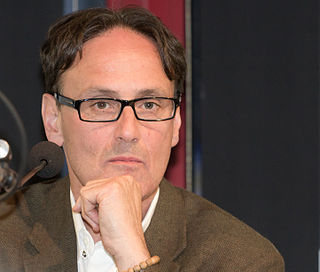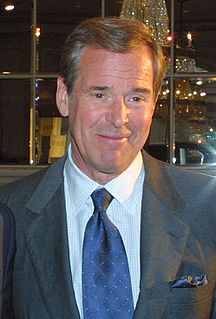A Quote by Billy Joel
I once believed in causes, too. Had my pointless point of view. Life went on no matter who was wrong or right.
Related Quotes
The optimist is right. The pessimist is right. The one differs from the other as the light from the dark. Yet both are right. Each is right from his own particular point of view, and this point of view is the determining factor in the life of each. It determines as to whether it is a life of power or impotence, of peace or of pain, of success or of failure.
Whenever we feel that we are definitely right, so much so that we refuse to open up to anything or anybody else, right there we are wrong. It becomes wrong view. When suffering arises, where does it arise from? The cause is wrong view, the fruit of that being suffering. If it was right view it wouldn't cause suffering.
In fact, on one occasion, a rather pedantic experimental psychologist was telling him about a long, complicated experiment he had done, incorporating all the proper controls and using considerable technical virtuosity. When he saw Crick's exasperated expression he said, "but Dr. Crick, we have got it right - we know it's right," Crick's response was, "The point is not whether it's right. The point is: does it even matter whether its right or wrong?"
Every mind has its particular standard of good and bad, and of right and wrong. This standard is made by what one has experienced through life, by what one has seen or heard; it also depends upon one's belief in a certain religion, one's birth in a certain nation and origin in a certain race. But what can really be called good or bad, right or wrong, is what comforts the mind and what causes it discomfort. It is not true, although it appears so, that it is discomfort that causes wrongdoing. In reality, it is wrongdoing which causes discomfort, and it is right-doing which gives comfort.
In all disputes, a point is arrived at where no party, no matter how right or wrong it might have been at the start of that dispute, will any longer be totally in the right or totally in the wrong. Such a point I believe, has been reached in this debate... Let us not equivocate. A tragedy of unprecedented proportions is unfolding in Africa.
He decided then that he would love her forever no matter what came to pass. It was not so much a matter of deciding as accepting the inevitability of it. It made him feel better, though he felt perturbed, too, worried that this kiss was wrong. But from his point of view, at fourteen years old, their love was entirely unavoidable. It had started on the day they'd clung to his glass box and kissed in the sea, and now it must go on forever. He felt certain of this.
[T]he more clamour we make about 'the women's point of view', the more we rub it into people that the women's point of view is different, and frankly I do not think it is -- at least in my job. The line I always want to take is, that there is the 'point of view' of the reasonably enlightened human brain, and that this is the aspect of the matter which I am best fitted to uphold.
Jack believed in something—he believed in white witches and sleighs pulled by wolves, and in the world the trees obscured. He believed that there were better things in the woods. He believed in palaces of ice and hearts to match. Hazel had, too. Hazel had believed in woodsmen and magic shoes and swanskins and the easy magic of a compass. She had believed that because someone needing saving they were savable. She had believed in these things, but not anymore. And this is why she had to rescue Jack, even though he might not hear what she had to tell him.



































